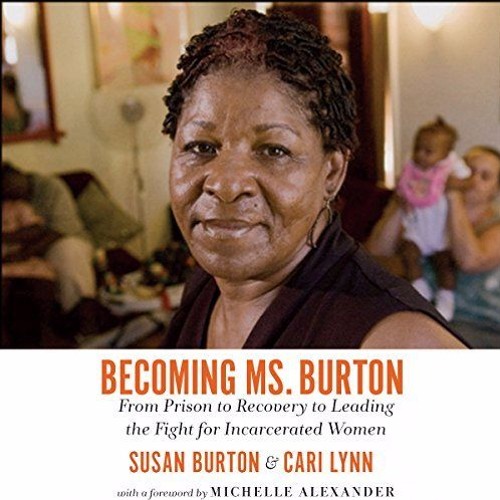

She stopped doing drugs in 1997, because of the help she received from the CLARE Foundation. It was hard to find a rehabilitation center that she could afford, and finally she found the CLARE Foundation in Santa Monica. Determined to prove him wrong, Burton tried to find a drug treatment facility that was away from her home neighborhood, where it would be too easy to fall back into her old patterns of addiction. Upon her last release, a prison guard told her that he would see her in prison again soon. She was trapped in a vicious cycle, where she could not find a job, did not have housing, and would eventually get caught and placed back in prison again. She went in and out of prison six times during the 1980s and the 1990s, each time she was released with limited money, no ID, and no social security card. She eventually was arrested and jailed for crack cocaine. She became addicted to crack cocaine while living in Watts, Los Angeles. Consumed with grief and heartbreak, and without any access to therapy, Burton turned to alcohol and drugs. Her five-year-old son, Marque Hamilton, was accidentally hit and killed by a police cruiser in 1982. Her upbringing was full of turmoil, and she struggled constantly. Life īurton was born and raised in housing projects in East Los Angeles. She was named a CNN Hero in 2010 and a Purpose Prize winner in 2012. Burton not only humanizes the deleterious impact of mass incarceration, it also points the way to the kind of structural and policy changes that will offer formerly incarcerated people the possibility of a life of meaning and dignity."- Provided by publisher.Susan Burton is an activist based in Los Angeles, United States who works with formerly incarcerated people and founded the nonprofit organization, A New Way of Life. Her organization, A New Way of Life, operates five safe homes in Los Angeles that supply a lifeline to hundreds of formerly incarcerated women and their children-setting them on the track to education and employment rather than returns to prison. Once clean, Susan dedicated her life to supporting women facing similar struggles. On her own, she eventually found a private drug rehabilitation facility. She cycled in and out of prison for over fifteen years never was she offered therapy or treatment for addiction.

As a resident of South Los Angeles, a black community under siege in the war on drugs, it was but a matter of time before Susan was arrested. Consumed by grief and without access to professional help, Susan self-medicated, becoming addicted first to cocaine, then crack. "Susan Burton's world changed in an instant when her five-year-old son was killed by a van driving down their street.

Bibliography Includes bibliographical references (pages 287-304).


 0 kommentar(er)
0 kommentar(er)
